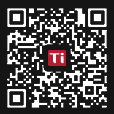KC certification
Home > Our Services > Certification services > KC certification

Service Content
The "KC" logo means "Korea Certification". KC certification is a safety certification system for electrical and electronic products in South Korea. The mandatory safety certification system implemented on January 1, 2009.
In order to avoid repeated certification, from July 1, 2012, EMC and Safety are managed separately. All electronic and electrical products applying for Korean certification must obtain KC certificate and KCC respectively for their safety (Safety) and electromagnetic compatibility (EMC) requirements. certificate (new MSIP). There are 2 qualification certification bodies for KC certification: Korea Electrical and Electronic Testing Institute (KTC, Korea Testing Certification) and Korea Industrial Technology Testing Institute (KTL, Korea Electrical Testing Institute). These two are not only KC's certification agencies, but also qualification testing laboratories.
In terms of safety standards, all products entering the Korean market need to comply with the Korean safety standard K standard (similar to the IEC standard). When using the IEC standard, the Korean requirements must be met. National differences can be found in the announcement in the CB system of IECEE. In terms of EMC, the Korean EMI standard is similar to the CISPR standard, and the EMS standard is similar to the EN standard.
Korea KC certification is divided into "KC Safety", "KC EMC and RF" and "MEPS". According to the different levels of product hazards, KC Safety certification is divided into three categories: Mandatory Safety Certification (Safety Certification); Self-regulatory Safety Confirmation (Self-regulatory Safety Confirmation); Supplier Self-Confirmation (SDoC)
The product range of KC certification generally includes electrical products with AC voltage above 50 volts and below 1000 volts. In addition, in addition to products that must obtain safety certification, self-regulatory safety confirmation must be applied for.




